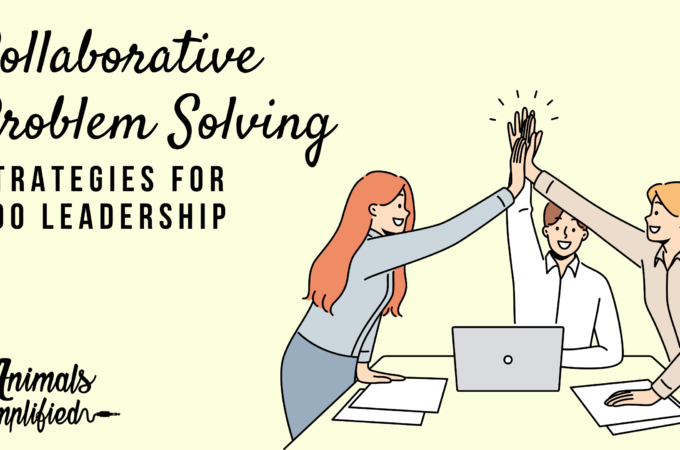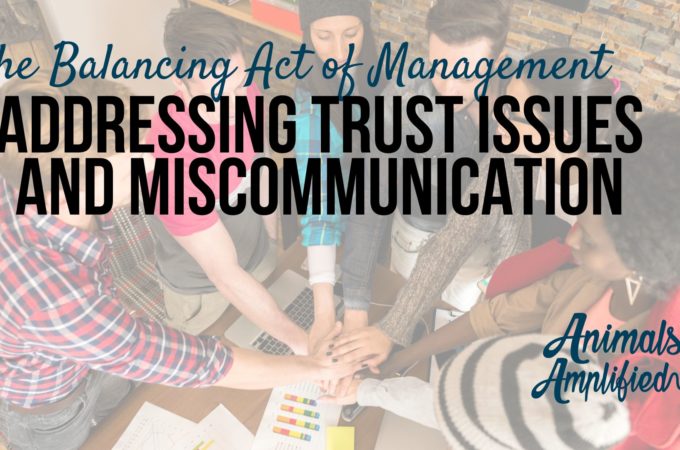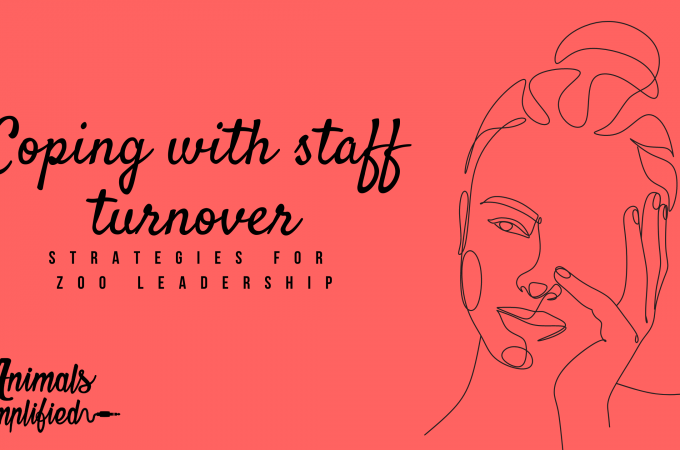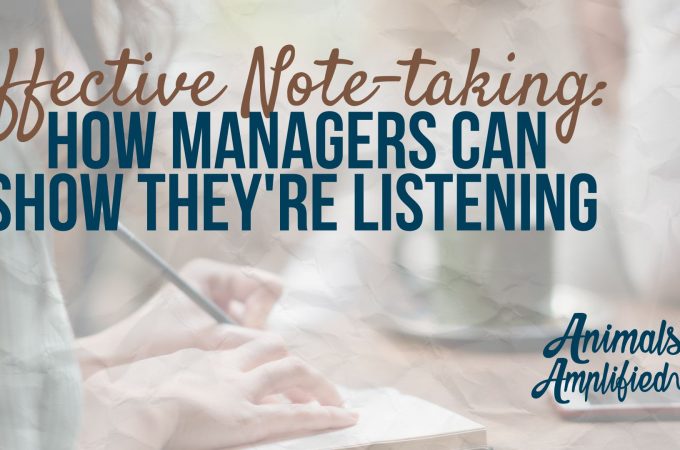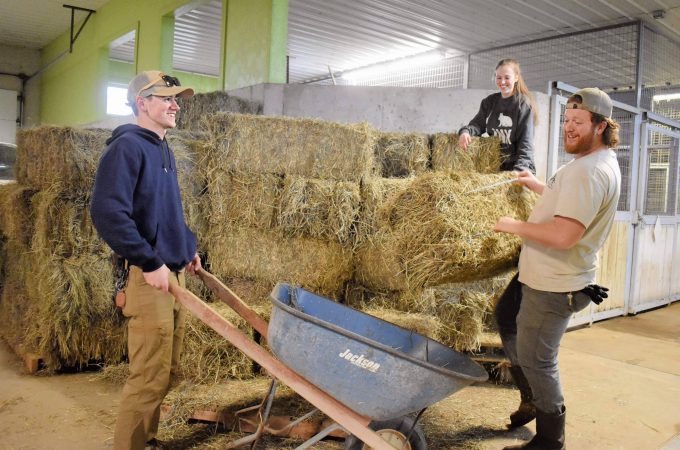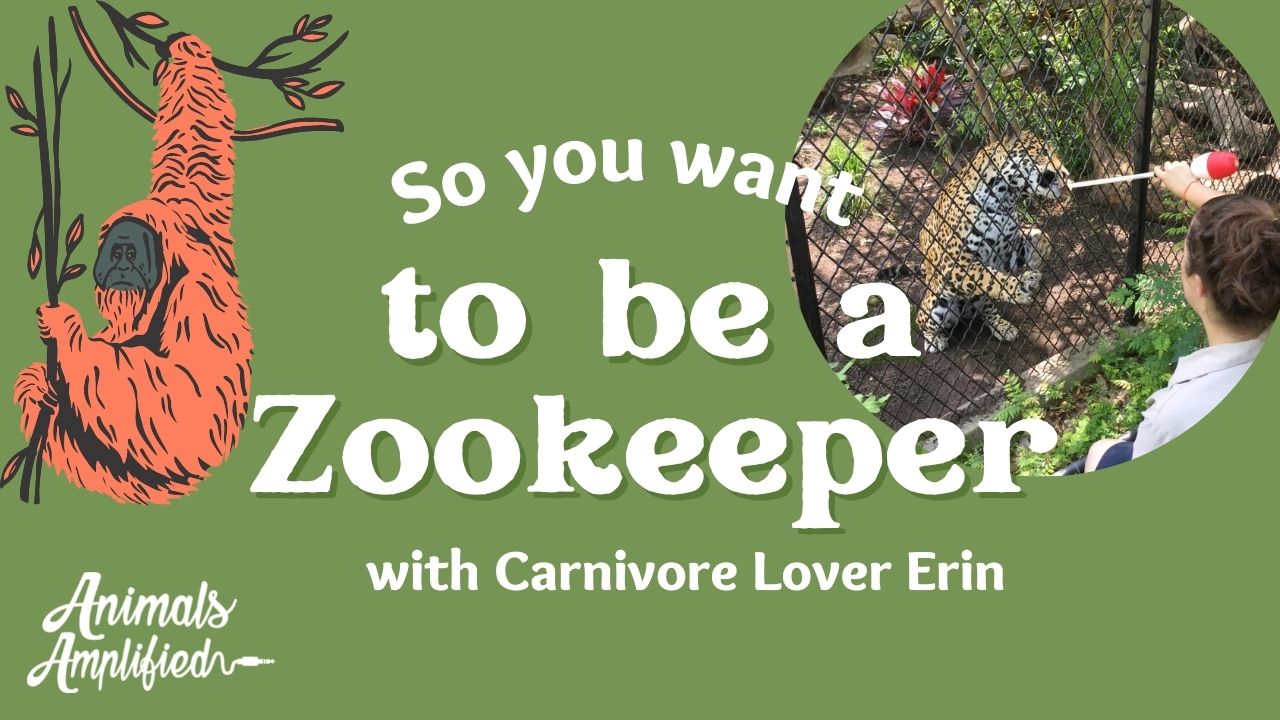
So You Want to Be a Zookeeper: Behavioral Husbandry Coordinator
Erin shares her pathway to being a zookeeper and, ultimately, Behavioral Husbandry Coordinator. She thought she wanted to be a veterinarian in college but then found that she loved the husbandry.
Behavioral Husbandry Coordinator
Her entry into the field took her through a few internships and a seasonal position. She landed her first full-time permanent role as a relief keeper. After that, she took another job and received a promotion to senior keeper. Her most recent role was as a Behavioral Husbandry Coordinator, Animal Care Supervisor, AND Carnivore Keeper.
As a Behavioral Husbandry Coordinator, she had to find a way to free up her time. Being successful in this position meant learning how to rely on her team, cross-train, and trust them to accomplish more of the daily tasks. With the extra time, she coordinated a voluntary medical training program. “My biggest goal was to have the experience for the animals be as voluntary as possible.”
She took a lot of input from her team on what they wanted to see in an enrichment and training program. This program also had to meet AZA standards and USDA requirements. She coordinated the teams’ resources and training to meet the enrichment standards. The Behavioral Husbandry Coordinator needed to be able to identify training goals and build the team’s training skills.
Find her sweet spot
Erin did a little bit of job-hopping at the beginning of her career. Her first few positions didn’t last longer than two years. I asked her if she had experienced the “honeymoon phase,” where the first six months are easy, very hard, or very easy. She’s experienced both phases and talks about how having the patience to get to the “sweet spot” requires learning to stick it out.
“It’s okay to support that person that maybe did get that coordinator position.” Erin talked about her personal growth of being patient and learning to celebrate others and still be involved. She reflects on how her career might look different if she had more patience early on.
Animals to People
Observing other leaders in the industry taught her that focusing on the people was also crucial for excellent animal care. She shares the shift from being a keeper to staying away from people and learning how to grow her soft skills to improve communication. Some of the most important skills are communication, having an open mind, and being professional are vital to good husbandry.
We discuss possessiveness being a big challenge for keepers to overcome. Erin had to learn how to train her replacement and set aside her possessiveness to be a great behavioral husbandry coordinator.
“I started to really love and get excited about other people’s success. And realizing that other people’s success meant my success as well.” This shift in mindset was the shift she needed to make an impact through the team instead of making an independent impact.
Professional Development
Learning how to have an open mind and reach out to experts to get advice was essential for learning and growing. She used listserves, zookreepers Facebook Group, asked experts and recognized that it was okay not to know everything.
Being open to changing things was essential to her growth. At first, she saw it as a failure if someone wanted to change the program or idea she brought to the table. Letting go of her possessiveness and accepting the feedback was vital for her growth.
Proudest Moments
Erin reflects on how exciting it was to see others grow and develop. She loved watching “it click” for her team when working on a behavior. It was also exciting to find people’s passions and nurture that.
We discuss some of the other pathways to personal growth instead of leadership. Titles don’t always have to be the next level.
Erin’s most significant advice is to “keep an open mind.” She reminds listeners to carefully consider how they deliver their new ideas and be respectful about their questions. An open mind will help avoid negativity and gossip.
Erin also shares what’s next for her, leaving the zookeeping industry for a new endeavor.
Decisions are not as easy as they look.
Being a supervisor gave Erin a view of the industry that is unique. She worries that the disconnect between the frontline and leadership is getting wider. She encourages keepers to be respectful, learn how to advocate for their position, and remember they can influence culture.

